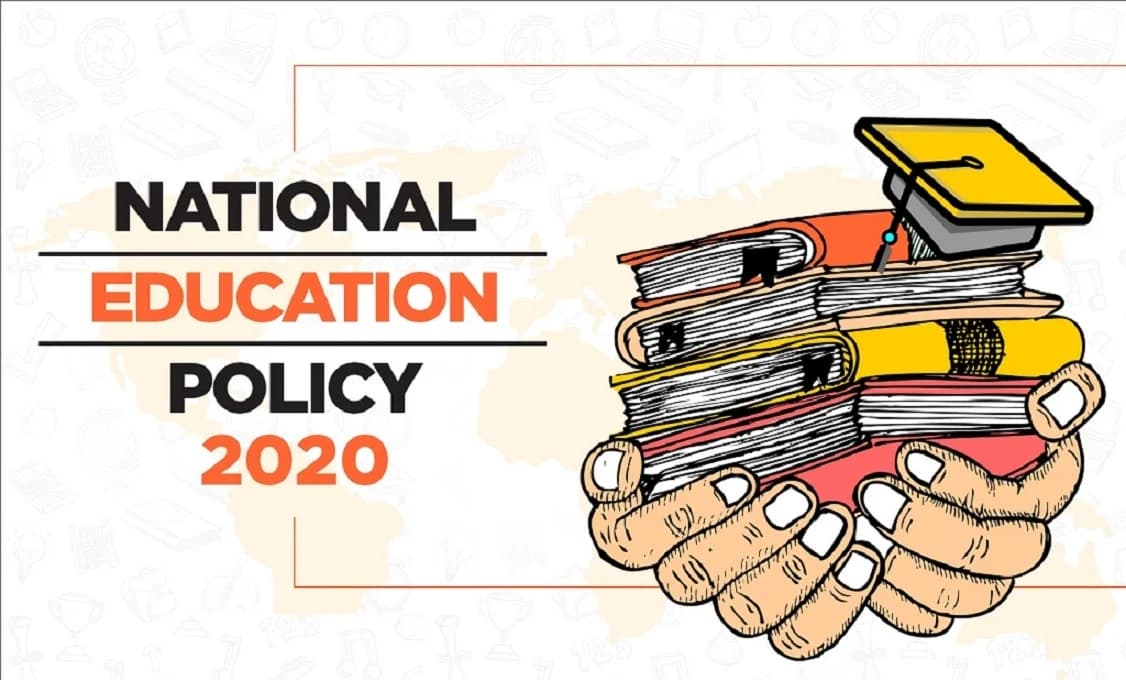India’s National Education Policy 2020 (NEP 2020) marks a transformative shift in the country's educational landscape, aiming to create an equitable, inclusive, and dynamic system that meets the needs of 21st-century learners. It moves away from rigid structures and rote-based approaches, and instead advocates for a flexible, learner-centric model underpinned by holistic development, critical thinking, and quality assurance mechanisms such as NAAC for higher education and SQAAF for schools.
1. Transforming Pedagogical Structures: A Development-Oriented Design
NEP 2020 introduces a foundational change in the school education structure by replacing the traditional 10+2 system with a more developmentally appropriate 5+3+3+4 model. This new structure aligns with cognitive and socio-emotional developmental stages of learners:
Foundational Stage (5 years): Includes pre-school and Grades 1–2, emphasizing play-based and activity-based learning.
Preparatory Stage (3 years): Grades 3–5 focus on discovery and experiential learning.
Middle Stage (3 years): Grades 6–8 introduce subject-specific teachers and encourage conceptual understanding.
Secondary Stage (4 years): Grades 9–12 allow multidisciplinary and flexible subject choices, preparing learners for life and work.
This design promotes early childhood education, foundational literacy and numeracy, and holistic skill development from the outset.
2. Redefining Curriculum for Real-World Relevance
The NEP moves the curriculum away from excessive content to focus on essential concepts, critical thinking, and interdisciplinary integration. Key changes include:
Emphasis on problem-solving, creativity, and experiential learning across all grades
Integration of vocational training, arts, sports, and value-based education as core components
Promotion of multilingualism, including teaching in the mother tongue/local language until at least Grade 5, as well as exposure to classical and foreign languages
Introduction of emerging fields such as AI, design thinking, data literacy, and environmental education at various stages
These reforms ensure students are equipped not just with academic knowledge but also with skills and values necessary for lifelong learning and responsible citizenship.
3. Embedding Quality Assurance: The Roles of SQAAF and NAAC
To maintain educational integrity and drive continuous improvement, NEP 2020 strengthens quality assurance mechanisms across all levels of education.
For School Education: SQAAF (School Quality Assessment and Assurance Framework)
Launched by CBSE, SQAAF supports schools in implementing NEP-aligned reforms through a structured self-evaluation framework. It enables institutions to:
Assess performance across domains such as leadership, curriculum delivery, infrastructure, and student well-being
Identify strengths and gaps to promote continuous school improvement
Align with national standards, ensuring every child receives an equitable and safe learning experience
For Higher Education: NAAC (National Assessment and Accreditation Council)
NEP advocates a more transparent and developmental approach to accreditation by:
Shifting from a grade-based model to a binary system (Accredited/Not Accredited)
Implementing maturity-based institutional development metrics, emphasizing growth over time
Encouraging innovation, autonomy, and data-driven digital audits
The role of NAAC is no longer limited to assessment alone—it becomes a driver of systemic enhancement and institutional accountability.
4. Vision 2040: Equitable Access and Global Standards
The overarching aim of NEP 2020 is to make India a global knowledge superpower by 2040. This vision includes:
Universal access to quality education from pre-school through higher education
Removal of disparities through inclusivity and support for socio-economically disadvantaged groups
Creation of world-class institutions through multidisciplinary curricula, flexible pathways, and robust teacher development
Establishment of a light but tight regulatory framework ensuring autonomy with accountability
The emphasis on character building, ethics, and constitutional values further reinforces education as a public service and a national priority.
5. A Unified Framework for Systemic Excellence
NEP 2020 doesn’t view education in silos—it proposes a synergistic structure integrating early childhood, school, and higher education through consistent standards, seamless progression, and shared goals. The policy is rooted in Indian ethos, yet future-ready in design. It underscores that accreditation is not a one-time rating but a journey of continuous improvement backed by research, innovation, and community engagement.
Conclusion
NEP 2020 represents not just a policy, but a national commitment to reimagine education for the better. Through its structured focus on curricular reform, pedagogical innovation, and rigorous accreditation, it lays the foundation for a future-ready India.
To support institutions in their accreditation journey, Luneblaze offers AI-powered accreditation solutions for schools and colleges, streamlining SQAAF and NAAC processes with automated documentation, audits, and expert consultancy, trusted by over 100 institutions since 2017.
Together, let’s raise educational standards. Reach us at: contact@luneblaze.com











